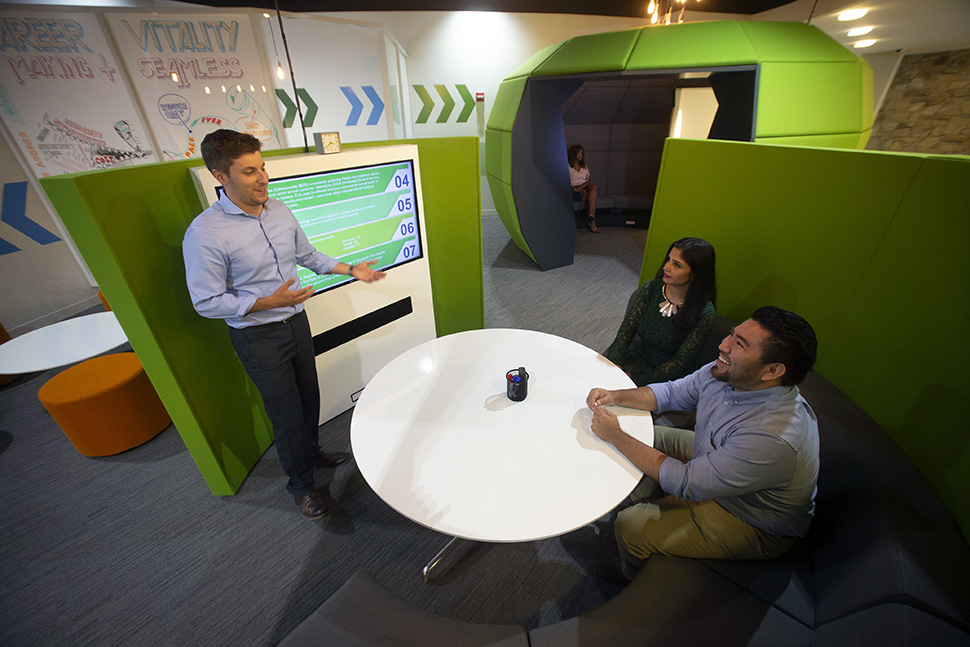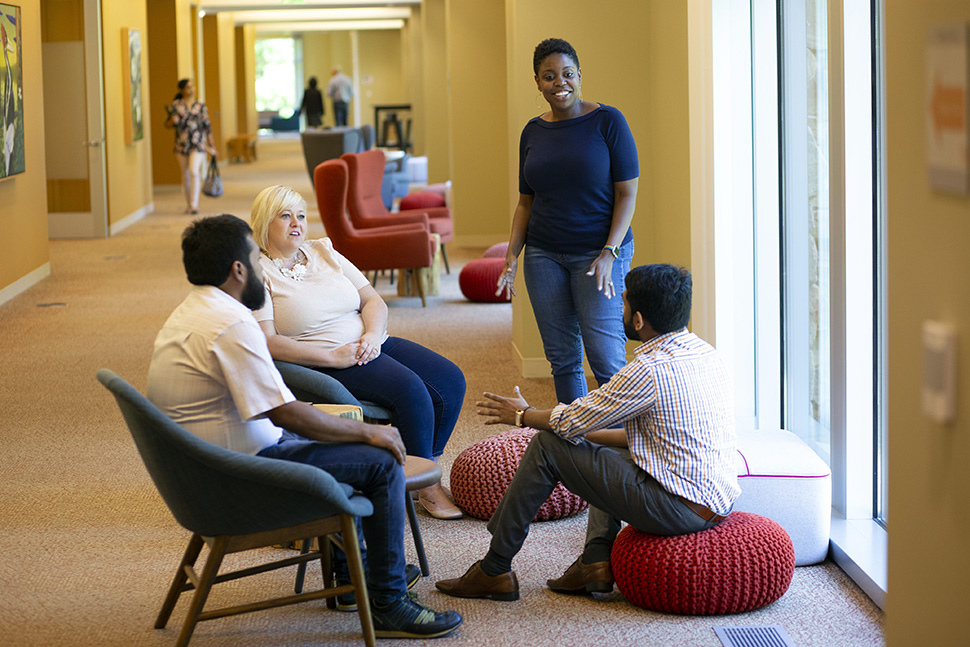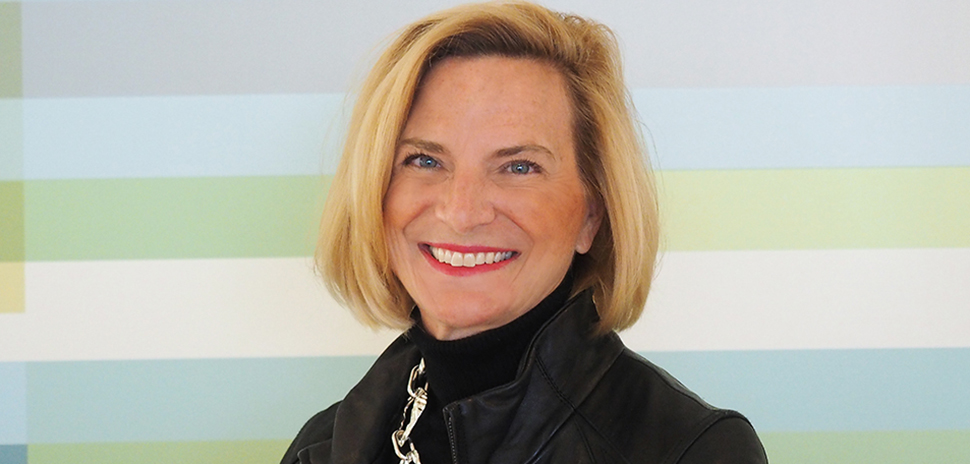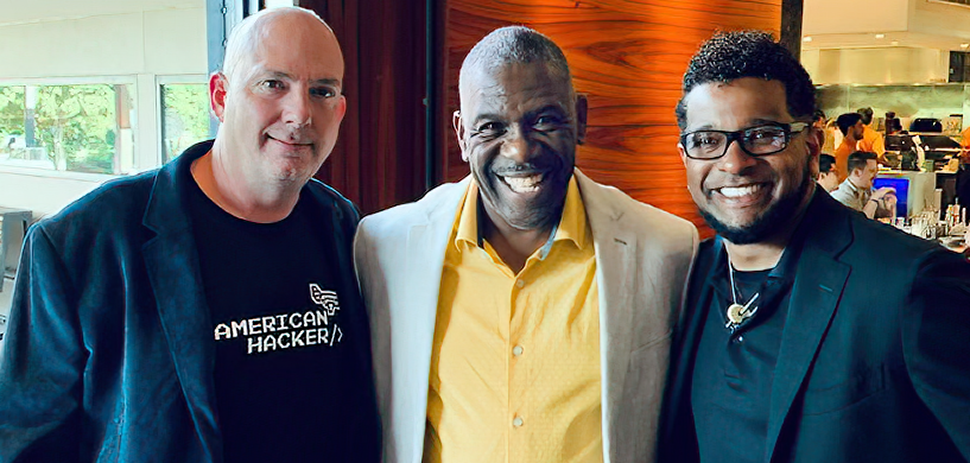Fidelity Investments, the multinational financial services corporation, employs around 40,000 people. But by leveraging technology, Fidelity helps its people feel more at home.
“Organizations often start with the tech—in other words, “We need to get our employees onto XYZ tool,'” Andrea Hough, Fidelity’s head of talent management, says. “But doing so allows the technology (and its limitations) to define the employee experience.”
Instead, Fidelity works backwards by starting with the ideal employee experience, and exploring what technology can help get there. Then, once the tool is in place, the company ensures that the employee input aligns with its mapped experience.
“Are employees embracing the tool, or just inputting goals to check a box? The data in the tools themselves is a good barometer for success,” she says.
For example, the company’s People Analytics team recently developed a proprietary algorithm that matches workers across the firm based on their backgrounds, pulling data from talent profiles and resumes. And, just last year, Fidelity made a shift to a more agile-inspired performance management style, which included moving away from an annual review and toward quarterly conversations between managers and associates. Since feedback is crucial to these meetings—but there wasn’t a process in place for employees to ask for and give feedback—Fidelity then implemented Workday, a mechanism to do so throughout the year, in a centralized way.
“Right now there is a proliferation of HR technologies available—from applicant tracking to engagement platforms to communication vehicles. What we’re doing that may be unique is looking at platforms outside of the HR space—tools that Fidelity already uses at the enterprise level—and re-imagining how they could be used for HR functions,” Hough says. “Taking a fresh look at repurposing tools can help not only reduce cost, but also create tool subject matter experts in various pockets across the enterprise, which can support talent mobility.”
A transformative trend she points to is the gig economy, which can actually be leveraged as career development, as gigs provide learning opportunities that replicate real-world experience. Internally, Fidelity’s Thrive platform (which Hough says is attractive for people at all stages of their careers) allows employees to post jobs that anyone can complete, from developing an API to designing a website. There’s also skills-based volunteer opportunities and Employee Resource Groups available.
Dallas Innovates and Hough dove deeper into how Fidelity takes on HR technology, along with tips for maintaining a strong company culture and attracting future generations.
How does Fidelity create and maintain a workplace culture that attracts and retains employees?
We know that employees are looking to work for a company that provides them with dynamic learning opportunities, and potentially several “mini-careers” during their tenure with the firm. To achieve that, we’re focused on a creating a culture of “everyone-to-everyone” feedback where employees are encouraged to regularly request specific feedback from their peers and business partners. This helps us be agile and support development on a real-time basis. Employees can also take advantage of 1:1 career coaching, workshops and professional development resources at the myCareer Center, which was piloted at our Texas regional site in Westlake for the enterprise.

Fidelity’s myCareer Center in Westlake. [Photo: Fidelity/Matt Stone]
What advice do you have for young people, especially college students, in entering the workforce?
Embrace talent mobility and don’t shy away from multiple ‘careers’ at one organization. At Fidelity Investments we’re focused on driving up our talent mobility and encouraging employees to gain experience in different businesses and functions. The workplaces of the future will only be more agile and interconnected, making talent with diverse experiences even more valuable.
What perks are most in demand?
We’re seeing a tremendous interest in our student debt relief program. Fidelity Investments began offering its Step Ahead Student Loan Assistance benefit to its employees in 2016, becoming one of the first companies to help employees ease the pressures of student debt. We provide eligible employees with more than six months of tenure $2,000 a year toward their student loans up to $10,000. More than 10,000 Fidelity employees have saved $56.5 million—$38.5 million towards principal payments plus $18 million in interest payments—since the program begin in 2016 with an average savings of $5,488 per person. Collectively, over 1,900 employees in Texas have saved $11 million in principal and interest since the student loan repayment program began in 2016, with an average savings of $5,500 per person. Fidelity Investments Texas employees have shaved off more than 2,100 years of loan payments. (Editor’s note: All data is through April 2019).
What tips do you have for someone who wants to get hired at Fidelity?
To demonstrate your value, showcase your competencies rather than your learned skills. Fidelity Investments has always been a company that has invested for the long term, and that includes investing in our talent, too. Some complementary food for thought: it’s reported that 65 percent of children entering primary school today will work in jobs that don’t yet exist.
How important is workplace culture for employee retention and recruitment strategy?
We’re in a very competitive labor market right now, which makes the notion of re-recruitment even more important. We need to “court” our employees just as much as our outside competitors may be. And a strong culture is critical to employee retention. We encourage a true culture of collaboration at Fidelity Investments by first ensuring that all of our employees are comfortable bringing their whole selves to work each day and secondly, ensuring our employees have the tools and resources required to collaborate.

[Photo: Matt Stone/Fidelity]
What do you consider the most sought-after skill or trait in Fidelity?
We’re seeing increased demand for “EQ” (or “emotional quotient”) competencies—these are the softer skills that help people empathize with others, both their customers and their coworkers. Skills for a particular role can be learned and taught, but “people skills” are an asset to any team.
Alex Edwards and Quincy Preston contributed to this report. A version of this Q+A was originally published in Dallas Innovates: The [Tech] Talent Issue.
Read it online
Dallas Innovates: The [Tech] Talent Issue, a special edition of the Dallas Innovates Magazine, looks at how companies in Dallas-Fort Worth are attracting and retaining the best talent. Startups, corporates, nonprofits, and organizations work hard to create a strong culture, promote diversity, and implement training programs that can help achieve success.
![]()
Get on the list.
Dallas Innovates, every day.
Sign up to keep your eye on what’s new and next in Dallas-Fort Worth, every day.






























